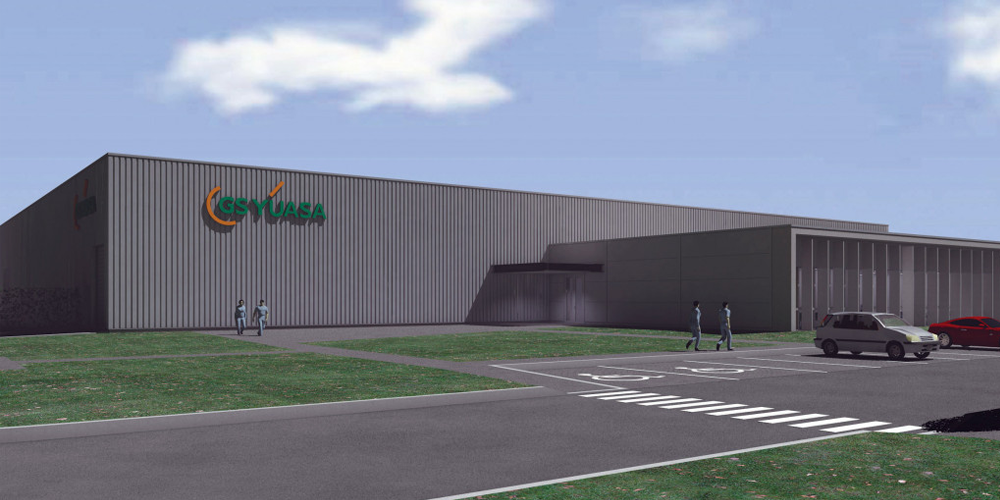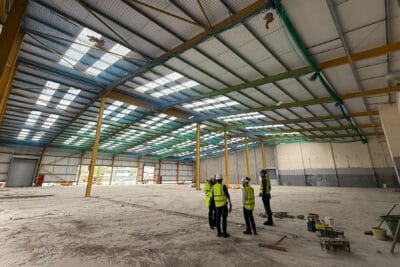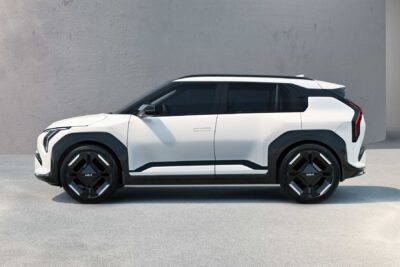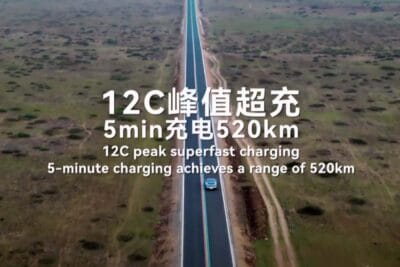GS Yuasa presents improved silicon electrode
The Japanese battery manufacturer GS Yuasa has developed a silicon-metal-based electrode which leads to a higher energy density and longer life cycles. It is said that the energy density can be tripled compared to conventional lithium-ion batteries.
GS Yuasa is a global battery manufacturer based in Japan. Its portfolio ranges from lead-acid to lithium-ion batteries, and the Group is active in various business segments, including industrial batteries for standby and cyclic applications as well as starter batteries for the automotive and motorcycle industries. GS Yuasa’s European headquarters has been located in Krefeld since 1983 and serves 15 European countries from there.
GS Yuasa now announced that it could provide “three times more energy for electric vehicles” through a new approach to battery development. The promising silicon-metal electrode could be used in all future solid batteries, according to the company. The cycle stability of the technology is now to be further improved to use the silicon-metal electrode in electric vehicles until around 2025.
Background: Silicon-metal has a very high theoretical capacity of 4,200 mAh per gram and is available as a raw material in large quantities. However, since silicon metal undergoes a considerable volume change of about 400 per cent during the charging and discharging cycle, the material decomposes during repeated charging and discharging of the battery. In this respect, technology has always been regarded as not very practical.
GS Yuasa now announces that it has improved the Coulomb efficiency and cycle performance of silicon-metal electrode batteries. Coulomb efficiency is the ratio of ampere-hours removed to ampere-hours spent. The Group states that the key is “to have found the optimum particle size and electrode structure for the electrodes”.
Specifically, GS Yuasa mentions three factors which, according to their statements, have led to success. As far as the particle size is concerned, the optimum was found, because if the particle size were too small, the Coulomb efficiency would be low. If the particle size were too large, the cycle performance would be low due to pulverisation, according to an accompanying press release. Secondly, the Japanese do not use a single type of conductive additive in the electrode as usual, but multiple different ones. This has improved the electrode formability of the silicon-metal electrode, and it has also been shown that the improved conductivity of the electrode leads to better discharge performance, says GS Yuasa. Thirdly, the use of a water-soluble binder has enabled an affordable mass production process.
GS Yuasa also cooperated with Bosch on a new battery technology for several years. The goal of the cooperation was to bring cells onto the market in 2020 that would offer twice the energy density of lithium-ion cells at half the cost. Bosch’s decision not to enter battery cell production in 2018, however, also rendered the German-Japanese research project obsolete. A joint venture between the two groups, which had been active until then, was not continued.
For GS Yuasa this is one more reason to look for partners elsewhere. Last year, together with other major Japanese companies, the group founded a consortium of companies to promote the development of solid state batteries for future electric vehicles with government aid. The alliance includes Toyota, Nissan, Honda and Panasonic. GS Yuasa also plays a vital role as a cooperation partner for Toyota‘s plan announced this summer to set the course for electric cars with batteries.
Source: PM via email





0 Comments